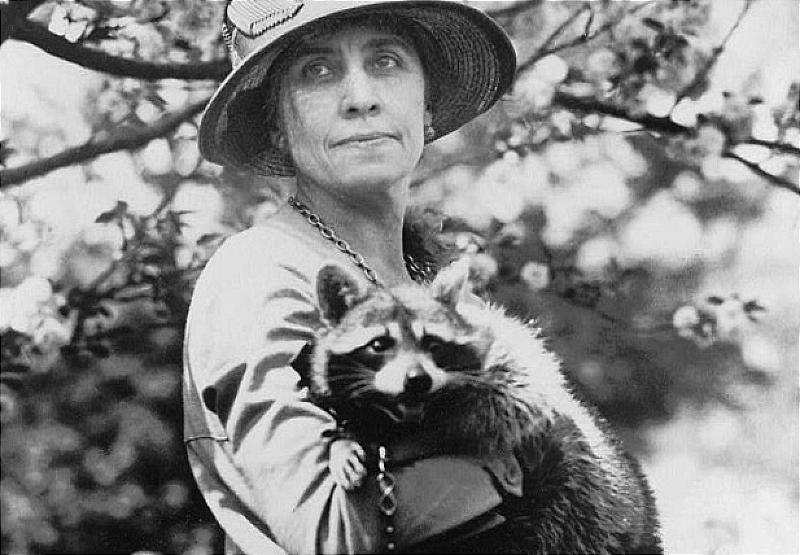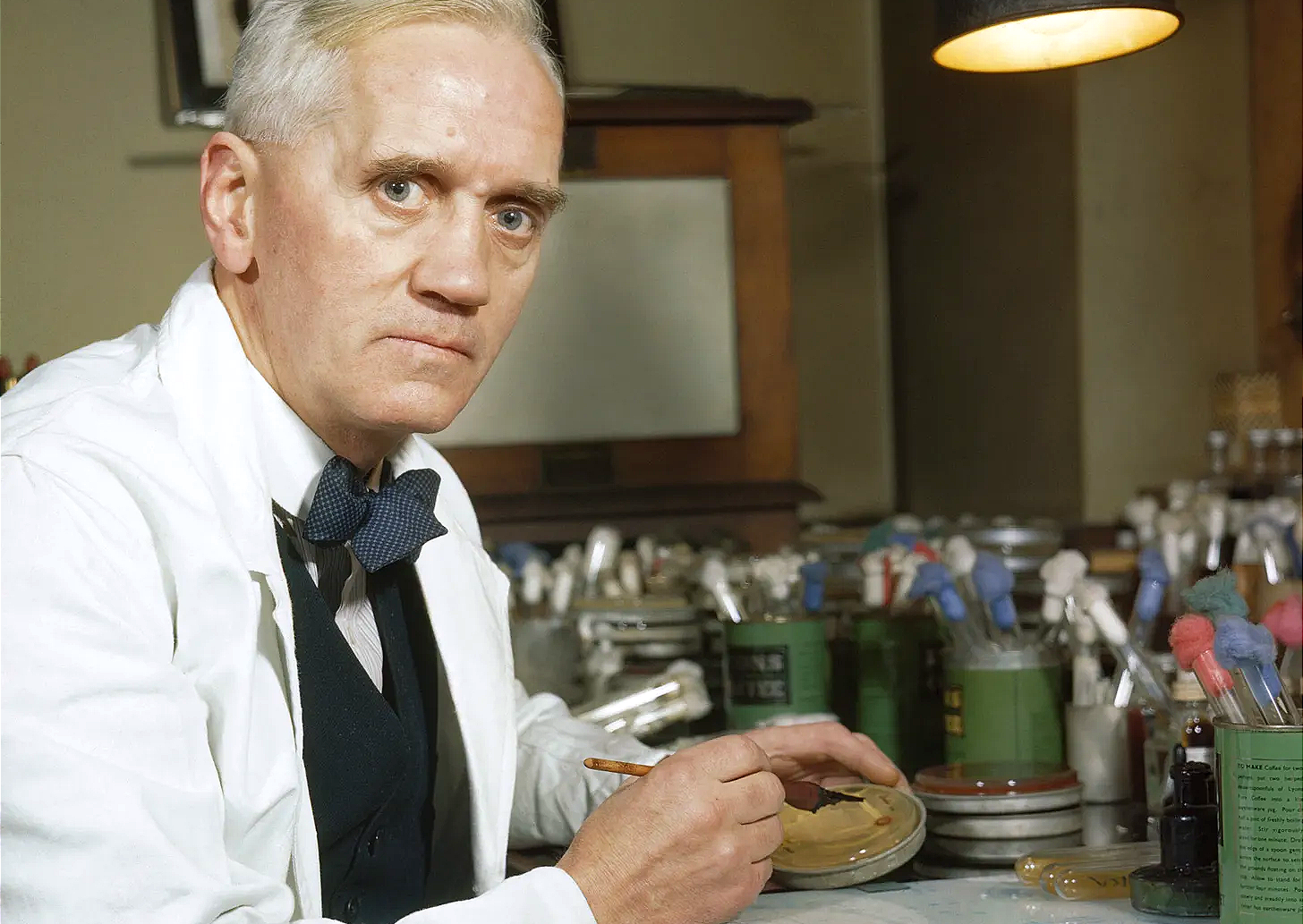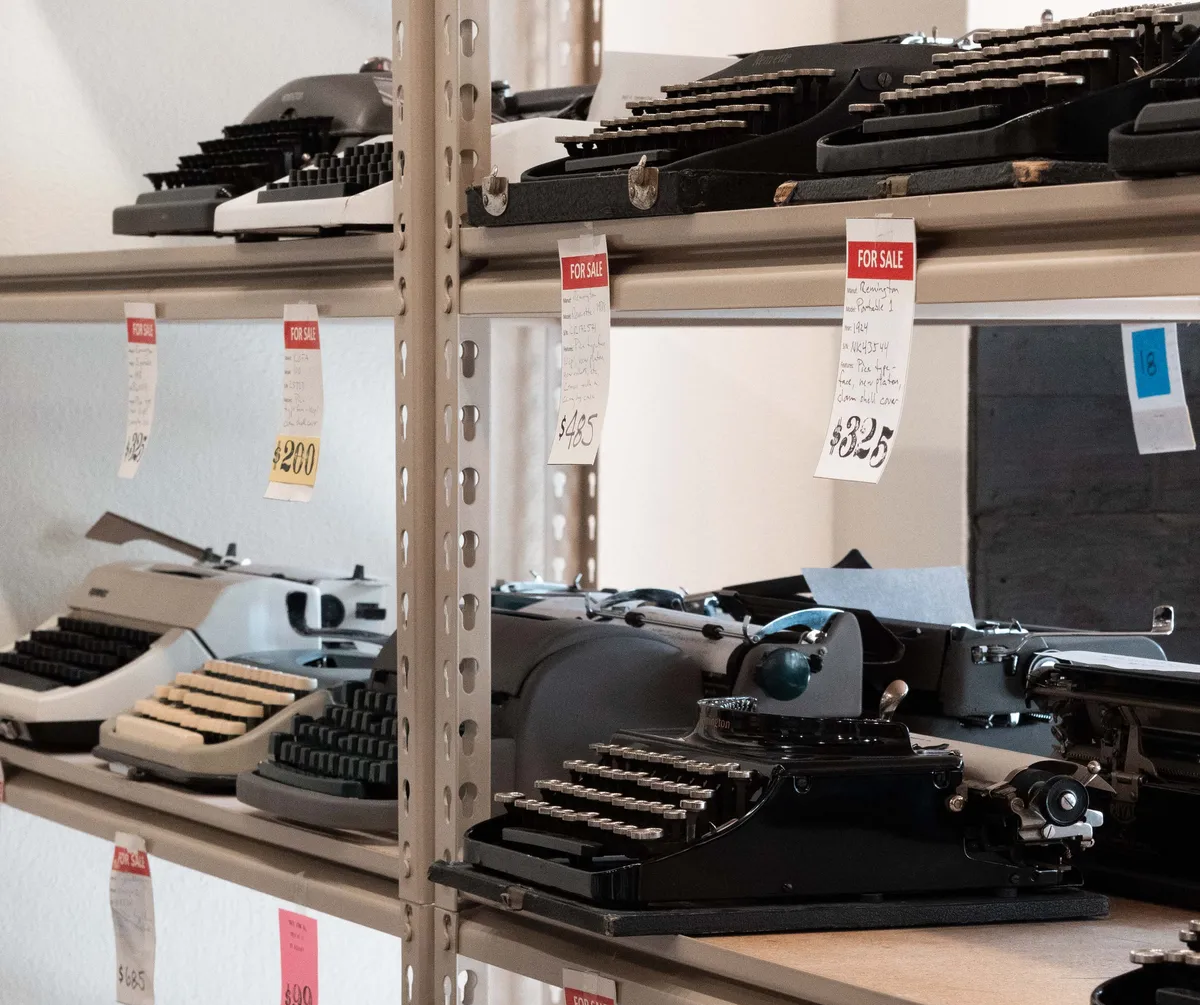President Calvin Coolidge had a pet racoon in the White House

After the 1913 death of Horace Vose, the traditional provider of the White House Thanksgiving turkey, numerous farmers sent animals to the president for Thanksgiving dinner. In 1926, a Mississippi supporter sent a racoon. Coolidge, who had never eaten raccoon and had no appetite to try it, kept the racoon as a pet and named it Rebecca. For Christmas, an embroidered collar was made for Rebecca, inscribed "White House Raccoon". She enjoyed participating in the annual White House Easter egg roll. She was fed shrimp and persimmons, and eggs were a favorite. Rebecca was let loose in the White House and walked on a leash outdoors. At times, she could be mischievous and was known to unscrew lightbulbs, open cabinets, and unpot houseplants. She was known to nestle in Coolidge's lap when he sat by the fireplace. (via Wikipedia)
The story behind Alexander Fleming's discovery of penicillin has a bunch of holes in it

Many know the story of Alexander Fleming’s chance discovery of penicillin. Fleming left culture plates streaked with Staphylococcus on his lab bench while he went away. When he returned, he found that “a mould” had contaminated one of his plates, having floated in from an open window. He noticed that, within a “ring of death” around the mold, the bacteria had disappeared. Fleming immediately began investigating this strange new substance. He identified the mold as Penicillium rubrum and named the substance penicillin. A decade later, pharmacologist Howard Florey and biochemist Ernst Chain at Oxford would pick up where Fleming left off, developing penicillin into a life-saving drug and usher in the era of antibiotics. This is the kind of science story everyone likes. One of serendipity and accidental discovery; a chance observation that changed the world. But is it true? For decades, scientists and historians have puzzled over inconsistencies in Fleming’s story. (via Asimov Press)
A British hospital improved its patient handling by studying the Ferrari F1 pit crew

Seldom does a hospital receive front page coverage in the Wall Street Journal, especially in an article about Ferrari racing crews, and seldom are a hospital’s physicians invited to speak to boards of directors of multimillion dollar corporations. Great Ormond Street Hospital for Children (GOSH), London, England, did both. Why? Because they had successfully benchmarked their handoff from cardiac surgery to the intensive care unit (ICU) against pitstop techniques of the famous Ferrari F1 race car team. GOSH doctors visited and observed the pit crew handoff in Italy, and became interested in the way they addressed possible failure. The crew sat around a table analyzing and reanalyzing, asking, “What could go wrong?” and “What are we going to do if it does go wrong?” and “How important is it if it goes wrong?” The group ranked them using failure modes and effect analysis (FMEA).(via Gwern.net)
Hi everyone! Mathew Ingram here. I am able to continue writing this newsletter in part because of your financial help and support, which you can do either through my Patreon or by upgrading your subscription to a monthly contribution. I enjoy gathering all of these links and sharing them with you, but it does take time, and your support makes it possible for me to do that. I also write a weekly newsletter of technology analysis called The Torment Nexus.
There's a tiny country inside Nevada whose currency is pegged to the cost of cookie dough

Molossia is a few acres stuck in the middle of Nevada, about a 30 minute drive from Carson City. Despite its location, Molossia isn’t a town or county — it’s a country unto its own, according to the 30 people (and four dogs) who live there. It was founded by Kevin Baugh in 1977, originally as the Grand Republic of Vuldstein — but there was no land associated with the Republic. That changed in 1998 when Baugh, the self-appointed Prime Minister of Vuldstein, acquired some land in Nevada. That year, he declared his land the Kingdom of Molossia, an independent nation wholly surrounded by the United States. Like most micronations, Molossia isn’t recognized by the international community. But that doesn’t stop Baugh and his neighbors from carrying forward the half-joking campaign to treat the area as a nation unto itself. They require visitors to get visas, but grant them — with a three-hour expiration — without any fuss. Its currency is pegged to the value of Pillsbury Chocolate Chip Cookie Dough (via Now I Know)
He gave up a 30-year career and a pension to study how to repair typewriters

Eleven years ago, Paul Lundy was dying a slow, workingman’s death under fluorescent light. For three decades, he had worked in facilities management — an honest trade that ground him down until, in his mid-50s, he had money, an authoritative title and a soul that was being sucked dry. He managed buildings for Seattle-area biotech firms, where people in lab coats made discoveries that saved lives. He kept the infrastructure running. Lundy had reached a ceiling. No college degree meant no room to grow in a world that valued credentials above experience. Retirement at 65 stretched before him like a prison sentence. One Sunday morning in 2014, he opened The Seattle Times and found a feature story about Bob Montgomery, age 92, known to friends, customers and locals simply as Mr. Montgomery. The article read like an obituary for a vanishing trade — fixing typewriters — suggesting that when Mr. Montgomery went, seven decades of expertise would vanish into the digital ether. (via the NYT)
Safety tip: Do not try to deep-fry a frozen turkey

Acknowledgements: I find a lot of these links myself, but I also get some from other newsletters that I rely on as "serendipity engines," such as The Morning News from Rosecrans Baldwin and Andrew Womack, Jodi Ettenberg's Curious About Everything, Dan Lewis's Now I Know, Robert Cottrell and Caroline Crampton's The Browser, Clive Thompson's Linkfest, Noah Brier and Colin Nagy's Why Is This Interesting, Maria Popova's The Marginalian, Sheehan Quirke AKA The Cultural Tutor, the Smithsonian magazine, and JSTOR Daily. If you come across something interesting that you think should be included here, please feel free to email me at mathew @ mathewingram dot com



